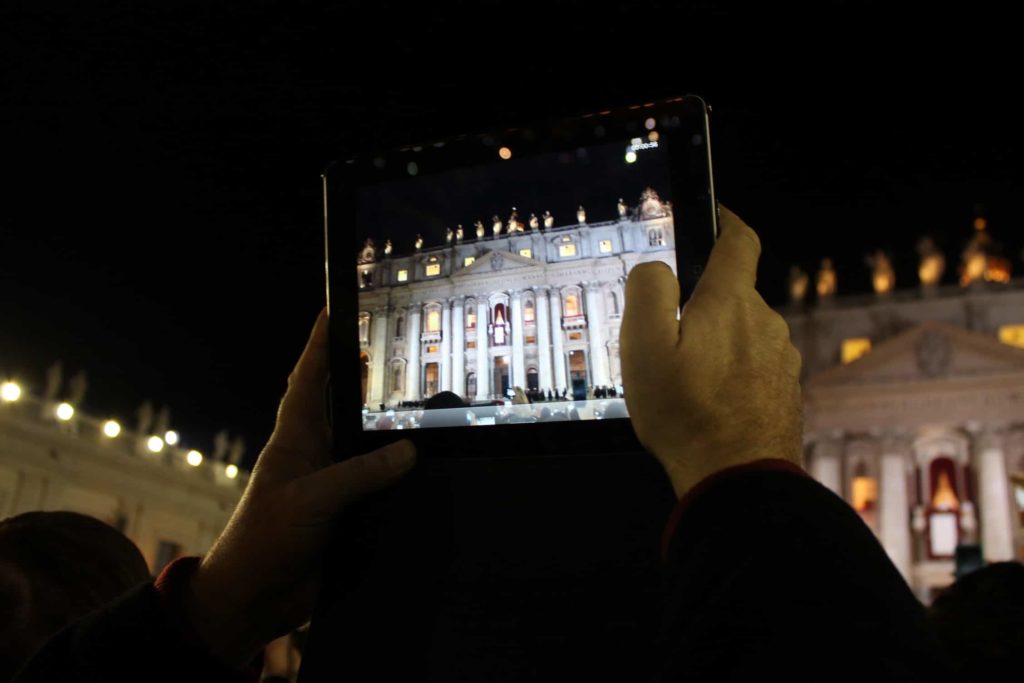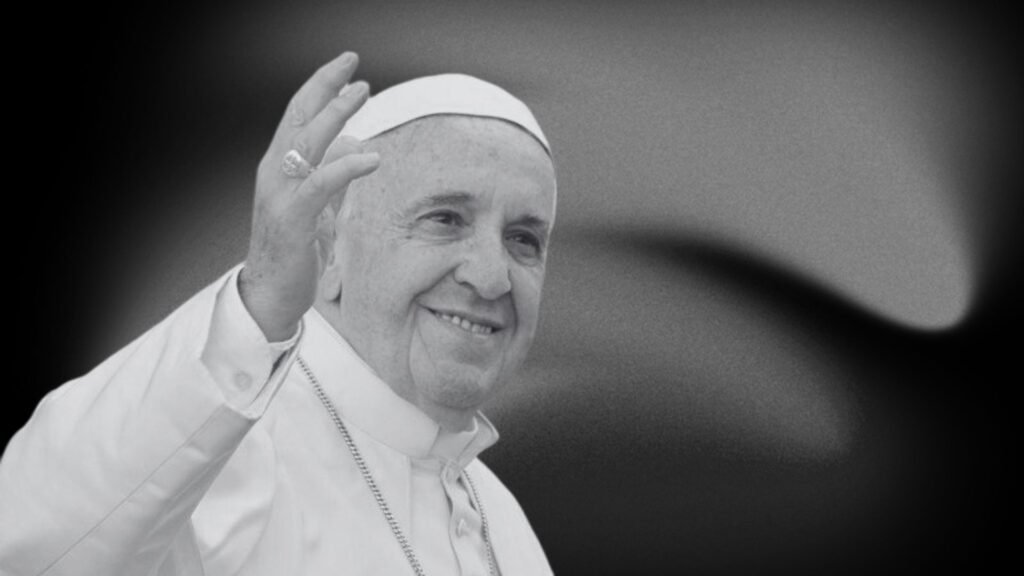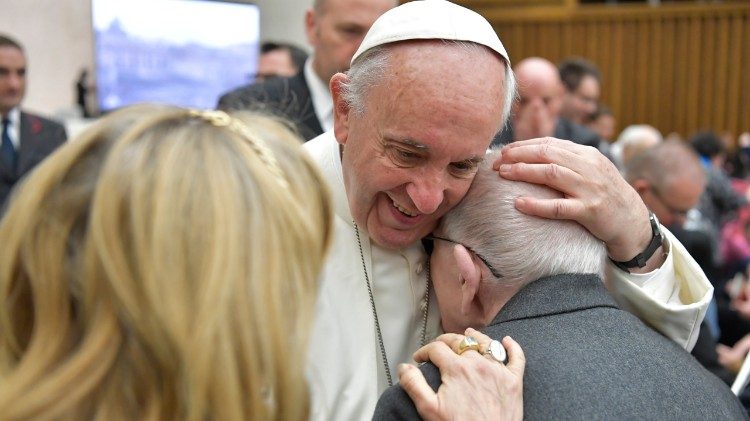Why Is the Catholic Church ‘Holy’?
Questions and Answers

Father Jairo Yate, priest and examining magistrate in the diocese of Ibagué, Colombia, answers the question: Why is the Catholic Church “Holy”?
According to the teaching of the Church herself.
***
What does the Magisterium teach about the Church?
“Faith confesses that the Church [. . . ] cannot but be holy. In fact, Christ, the Son of God, who with the Father and the Spirit is proclaimed ‘the only holy,’ loved the Church as his Bride. He gave Himself for her to sanctify her; He united her to Himself as His own body and filled her with the gift of the Holy Spirit for the glory of God’ (Lumen Gentium, 39). Hence the Church is the “Holy People of God’ (Lumen Gentium , 12), and her members are called holy’ (cf. Acts 9:13; 1 Corinthians 6:1; 16:1)” (Catechism of the Catholic Church, 823).
How Is the Church able to be Holy?
United to Christ, the Church is sanctified by Him and in Him. She has also been made a sanctifier. All the works of the Church make an effort to achieve the “sanctification of men in Christ and the glorification of God” (Sacrosanctum Concilium, 10).
Charity is the soul of holiness to which all are called.” It governs all the means of sanctification, informs them, and leads them to their end [132]. Hence the reason why charity to God and to one’s neighbor is the distinctive sign of the true disciple of Christ” (Lumen Gentium, 42).
If we are sinners, how can the Church be Holy?
The Church “is Holy even if she embraces sinners within her because she enjoys no other life than that of grace. If her members nourish themselves by this life, they are sanctified; if they move away from her, they acquire sins and stains of the soul that hinder her holiness from spreading radiantly. Then she is afflicted and does penance for those sins, having the power to free her children from them by the Blood of Christ and the gift of the Holy Spirit” (Paul VI, Creed of the People of God, 19; cf. Catechism of the Catholic Church, 823-827).
If the Church is Holy, are we called to be Saints?
All Christians, regardless of their state or condition, are called — each one in his own way –, to the perfection of holiness, whose model is the Father Himself” (Lumen Gentium, 11).
“Men and women Saints have always been source and origin of renewal in the most difficult circumstances of the history of the Church.” In fact, “the holiness of the Church is the secret source and infallible measure of her apostolic laboriousness and missionary impetus” (Catechism of the Catholic Church, 828).
Every Christian is called to holiness,” says Pope Francis. Holiness does not consist first of all in doing extraordinary things, but in letting God act. And the encounter of our weakness with the strength of His grace, is to have confidence in His action, which enables us to live in charity, to do everything with joy and humility, for the glory of God and in the service to our neighbor.
Can I be holy as God is Holy and His Church is Holy?
Pope Francis reiterates insistently that each one of us must be aware of the necessity that what we believe coincides with what we do or what we preach.
In the matter of faith, scandals must be avoided. The Commandments of God’s Law are the basis for an excellent Christianity. If you go to church, live as a son, as a brother, you always give witness.
We must think of a plan of life geared to holiness. The modern world leaves no room for a holy life, pleasing to God, useful for society. It’s a controversial world in its ideas, in its ethical and moral approach, in its behavior.
A saint’s plan of life must be clear: he who does not recognize himself a sinner does not achieve the objective of holiness. Vanity and pride, strongly injure the path to holiness. To feel satisfied with oneself, can be like a stone in the shoe in trying to achieve a life of holiness.
Duplicity, lies, and falsehood are opposed to a holy personality. Sadness and ingratitude are not signs of holiness. Mediocrity, to be satisfied with doing little, will not lead one to be a saint. Criticism and gossip are not means for holiness (Pope Francis, Gaudete et Exsultate).
The Apostle Saint Paul proposes charity as the effective means to have a healthy and holy life: a life that takes account of others, that purifies thought, that directs the reason, that focuses on what is just: “Love is patient and kind; love is not jealous or boastful; it is not arrogant or rude. Love does not insist on its own way. It is not irritable or resentful, it does not rejoice at wrong, but rejoices in the right. Love bears all things, believes all things, hopes all things, endures all things (1 Corinthians 13:4-7). Charity is the greatest of the virtues (cf. 1 Corinthians 13:13).
Jesus Christ Is the Best Example of Holiness for Daily Life
The Gospel according to Matthew offers the opportunity to all of us who are believers and baptized to find the practical and correct way to lead a life pleasing in God’s eyes; a holy life, the person who does what pleases his Lord.
It begins in chapter 5 and extends to the seventh chapter (Matthew 5:1-7; 29). The first way of the Gospel is the Beatitudes. Jesus Christ describes who can be a blessed person: the poor in spirit, the just, the merciful, the pure in heart. etc. (5:1-12).”
The second way is the new style of life proposed by the Saviour of the world. He who fulfills the Law of God will be great (5:19). “He who is angry with his brother shall be liable to judgment” (5:21). “Do not swear at all (5:34) No to the law of “an eye for an eye and a tooth for a tooth” (5:38). “Love your enemies and pray for those that persecute you” (5:43) “Be perfect as your heavenly Father is perfect” (5:48).
To imitate Christ enables us to become saints. It’s made possible by the presence of the Holy Spirit in us, who is the soul of the multi-faceted holiness of the Church and of every Christian. It is the Holy Spirit that moves us interiorly to love God with all our heart, with all our soul, with all our mind, with all our strength (cf. Mark 12:30), and to love one another as Christ has loved us (cf. John 13:34).
Translation by Virginia M. Forrester
Related

Saying Goodbye to Francis
Exaudi Staff
26 April, 2025
2 min

The Family: A School of Love, Forgiveness, and Hope
Laetare
25 April, 2025
3 min

Pope Francis: Leadership That Transforms Through Service
Javier Ferrer García
25 April, 2025
4 min

The heart of the Church beats between mourning and hope
Exaudi Staff
24 April, 2025
2 min
 (EN)
(EN)
 (ES)
(ES)
 (IT)
(IT)

